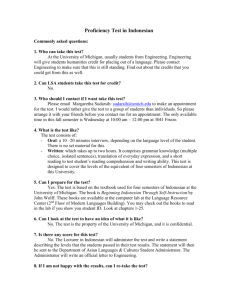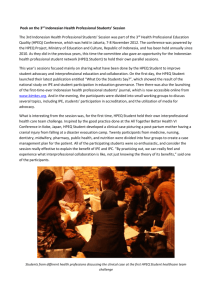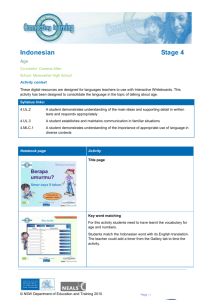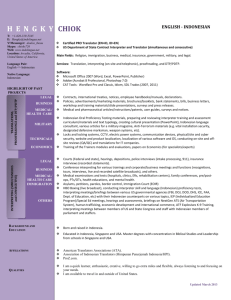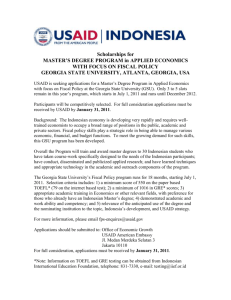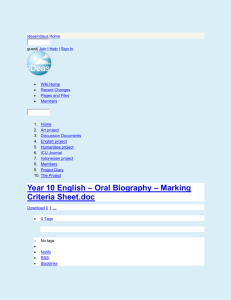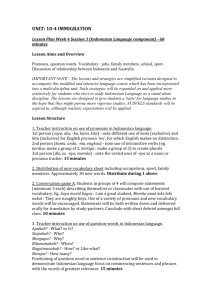WILTA STATEMENT
advertisement
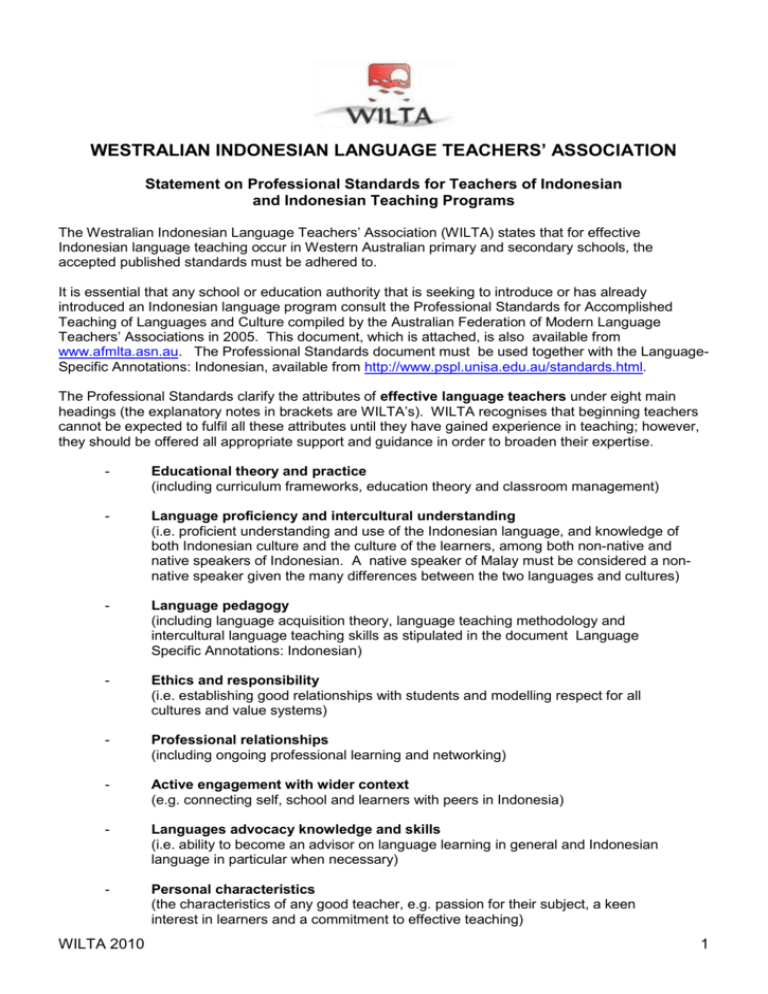
WESTRALIAN INDONESIAN LANGUAGE TEACHERS’ ASSOCIATION Statement on Professional Standards for Teachers of Indonesian and Indonesian Teaching Programs The Westralian Indonesian Language Teachers’ Association (WILTA) states that for effective Indonesian language teaching occur in Western Australian primary and secondary schools, the accepted published standards must be adhered to. It is essential that any school or education authority that is seeking to introduce or has already introduced an Indonesian language program consult the Professional Standards for Accomplished Teaching of Languages and Culture compiled by the Australian Federation of Modern Language Teachers’ Associations in 2005. This document, which is attached, is also available from www.afmlta.asn.au. The Professional Standards document must be used together with the LanguageSpecific Annotations: Indonesian, available from http://www.pspl.unisa.edu.au/standards.html. The Professional Standards clarify the attributes of effective language teachers under eight main headings (the explanatory notes in brackets are WILTA’s). WILTA recognises that beginning teachers cannot be expected to fulfil all these attributes until they have gained experience in teaching; however, they should be offered all appropriate support and guidance in order to broaden their expertise. - Educational theory and practice (including curriculum frameworks, education theory and classroom management) - Language proficiency and intercultural understanding (i.e. proficient understanding and use of the Indonesian language, and knowledge of both Indonesian culture and the culture of the learners, among both non-native and native speakers of Indonesian. A native speaker of Malay must be considered a nonnative speaker given the many differences between the two languages and cultures) - Language pedagogy (including language acquisition theory, language teaching methodology and intercultural language teaching skills as stipulated in the document Language Specific Annotations: Indonesian) - Ethics and responsibility (i.e. establishing good relationships with students and modelling respect for all cultures and value systems) - Professional relationships (including ongoing professional learning and networking) - Active engagement with wider context (e.g. connecting self, school and learners with peers in Indonesia) - Languages advocacy knowledge and skills (i.e. ability to become an advisor on language learning in general and Indonesian language in particular when necessary) - Personal characteristics (the characteristics of any good teacher, e.g. passion for their subject, a keen interest in learners and a commitment to effective teaching) WILTA 2010 1 The Professional Standards document also clarifies the attributes of effective language programs in schools. The main attributes of an effective Indonesian language program are: - Explicit valuing of languages programs (e.g. the Indonesian program is mentioned in school literature, at school assemblies) - Implicit valuing of languages programs (e.g. the Principal and other staff promote Indonesian language learning) - Effective timetabling (e.g. the timetable allows sufficient time and frequency for learning) - Effective staffing (e.g. the teacher is appropriately qualified and is not itinerant) - Dedicated language teaching and learning space (e.g. there is an Indonesian classroom or each classroom is suitably equipped for Indonesian teaching) - Adequate budget for resourcing (e.g. texts, audio-visual materials, photocopying and access to computers are ensured) - Appropriate class sizes (language learning works well only in classes significantly smaller than 32 students ) WILTA further states its concern that shortfalls in standards of teaching and language programs will result in a reduction in their effectiveness commensurate with the number of standards not fulfilled. Such a reduction in effectiveness may be experienced as any one or combination of the following: - a shortfall in student achievement levels - negative perceptions of language learning - a shortfall in the number of students continuing to study Indonesian past the mandated year levels - a reduction in teacher job satisfaction Finally, WILTA strongly recommends that educational jurisdictions institute a strict process to identify and authorise only teachers who have reached appropriate levels of competency in Indonesian language and language teaching methodology (based on the Professional Standards document) to teach in Western Australian schools. Likewise, schools should be advised on the program standards necessary for successful language learning. Sue Cooper President – WILTA January 2010 WILTA 2010 2
